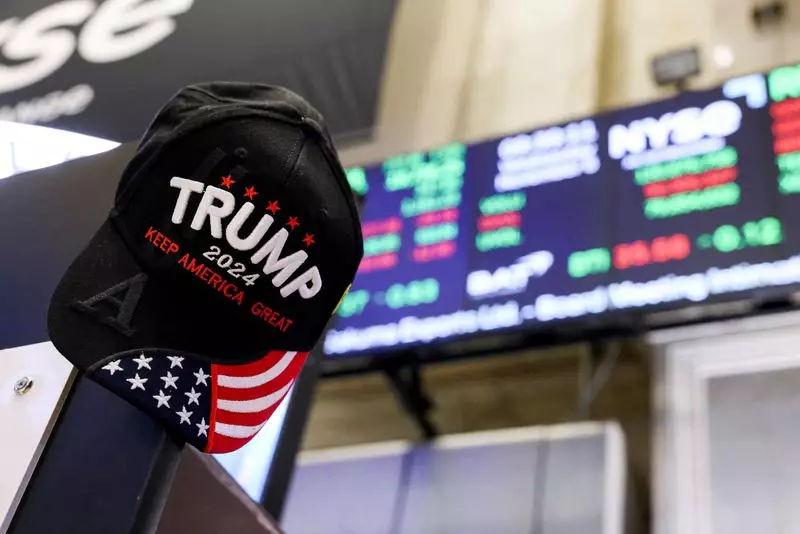The nomination of Scott Bessent as Treasury Secretary under President-elect Donald Trump has stirred considerable commentary among investors and analysts alike. This appointment comes amidst a backdrop of a struggling U.S. government bond market, characterized by rising yields and heightened anxieties regarding inflation and fiscal policy. With Bessent’s extensive background as a prominent investor, anticipation surrounds what his leadership could signal for the economic landscape and regulatory environment in the coming years.
In the days leading up to the announcement, significant uncertainty loomed over the bond market. The benchmark U.S. 10-year yield had soared to levels unseen in several months, reflecting a selloff pattern driven largely by speculation and concerns over the incoming administration’s economic strategy. Indeed, the choice of Bessent is viewed by many as a potential stabilizer. According to market expert Michael Purves, Bessent’s nomination alleviates fears about a more radical, overly aggressive policymaker stepping into the crucial role at a volatile time.
Investor sentiment appears to shift positively with Bessent’s fiscal conservatism noted by commentators, which engenders hope for more disciplined budgetary strategies. The financial community is eager for an administration that advocates for balanced economic growth, potentially mitigating fears surrounding escalating federal deficits linked to Trump’s proposed tax cuts and tariff strategies.
The financial implications of Bessent’s approach will undoubtedly be scrutinized. His prior advocacy for tax reform and deregulation, primarily aimed at stimulating bank lending and energy production, aligns neatly with market hopes for a growth stimulus while simultaneously managing potential fiscal pitfalls. Joe McCann, a notable figure in the financial sphere, confirms that the underlying expectation since the election has been rooted in a significant uptick in bond yields, reflective of anticipated higher deficits.
While the nomination is met with some optimism, it is essential to unpack the potential consequences. Christopher Hodge, a respected economist, emphasizes the need for Bessent to adopt a market-sensitive approach to mitigate extreme trade policies that could emerge from the administration. The looming threat of a trade war or steep tariffs is a pressing concern, and Bessent’s guidance could play a pivotal role in steering the administration towards more prudent trade practices.
The Importance of Treasury Secretary Management
New Treasury leadership inevitably invites investor scrutiny regarding the management of government debt, especially under the pressures of a fluctuating global economy. As Ed Al-Hussainy points out, the way in which Bessent, or any appointee, responds to fiscal crises will be pivotal in determining market stability. The dynamics of global financial crises can markedly differ based on whether the Treasury Secretary fosters an isolationist or more connected policy stance.
Moreover, the juxtaposition of Bessent’s potential regulatory approach with Trump’s proposals regarding the Federal Reserve adds a layer of complexity to the economic landscape. With Trump previously expressing desires for increased presidential influence over Fed decisions, a careful balance will need to be struck to maintain market confidence, particularly as bond prices react sensitively to Fed policy.
The nomination of Scott Bessent as Treasury Secretary embodies both opportunity and uncertainty for the U.S. bond market. While his credentials may offer reassurance to investors weary of potential radical shifts in fiscal policy, the path ahead remains fraught with challenges, particularly with the impending economic strategies proposed by the Trump administration. Markets will keenly observe how Bessent navigates this tightrope, particularly as global economic conditions evolve. A measured, markets-focused approach may indeed enhance financial stability, provided he steers clear of protectionist policies that could unravel the nuanced fabric of international trade. Thus, while optimism grows, it is imperative to remain vigilant about the potential repercussions of future policy outlines.

